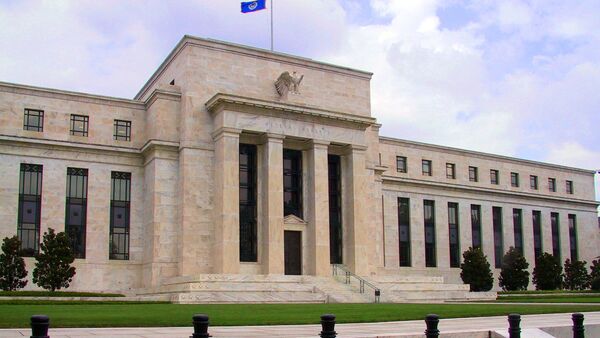WASHINGTON (Sputnik) — Fischer's advocacy for stimulative government spending contrasts with testimony in Congress last Thursday from his boss, Federal Reserve Chairman Janet Yellen. Addressing near-term prospects for the US economy, Yellen told lawmakers that the central bank will likely raise its primary interest rate soon due to an increased risk that financial stability could be undermined.
"Prominent among these challenges are low equilibrium interest rates and sluggish productivity growth in the United States and abroad," Fischer told an audience at the Council on Foreign Relations in New York.
The Federal Reserve's No. 2 official, whose talk didn't mention shorter-term economic analyses, cited data showing a decline in the equilibrium interest rate, the point at which the demand for and supply of money are in sync.
"Low interest rates make the economy more vulnerable to adverse shocks," Fischer warned. "More fundamentally, low equilibrium real rates could signal that the economy’s long-run growth prospects are dim."
He explained that under such circumstances, there is less impact from a central bank's monetary policy reduction of interest rates in response to economic conditions.
While acknowledging disagreements within central banks on how to achieve such a goal, Fischer asserted that monetary policy is able to stimulate economies.
"Some combination of improved public infrastructure, better education, more encouragement for private investment, and more effective regulation all likely have a role to play in promoting faster growth of productivity and living standards."
Weak productivity growth has likely contributed to pushing rates down through reduced investment and increased saving, he observed.



